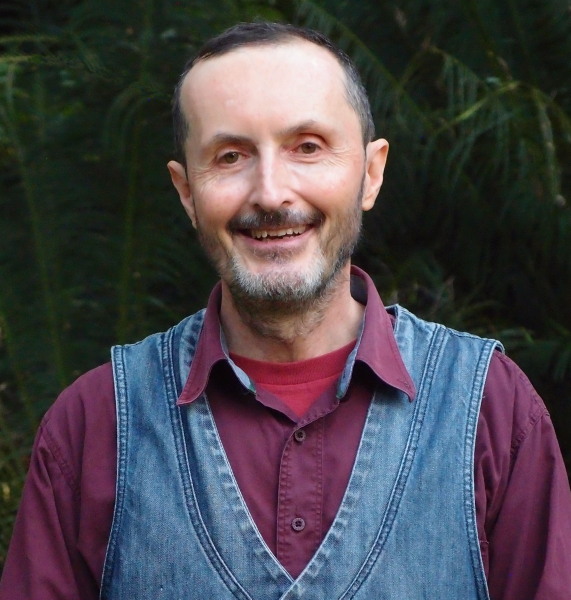Focusing is a simple, natural way of being with yourself that Matthew can help you with in Counselling, Intuitive Life Coaching and Clinical Supervision.
Our mind flows through bodily "Felt senses"
Focusing is about developing awareness of the way our mind flows through bodily “felt senses”. For example, when you think of a significant person or event or issue in your life, you might feel a smilingness in your whole body, an aching in your heart, a rush or a sinking of energy, a clenching of your jaw, a weight on your shoulders, a churning feeling in your stomach, a feeling of wanting to dance, or something else that’s a feeling of change in energy in your body when you turn your mind to something.
The importance of paying attention to these felt senses, which flow through us all the time, was discovered in the 1960s by Professor Eugene Gendlin at the University of Chicago, where he worked with one of the founders of Humanistic Psychology, Carl Rogers. What Gendlin and his research team discovered was that people who were more aware of these felt senses had much better outcomes in counselling than people who weren’t aware of them.
Gendlin realised from this research the central importance of teaching people how to become aware of felt sensing. This way of teaching felt sensing awareness, and how to work with that awareness, is called Focusing.
Psychology worldwide is still catching up
Psychology worldwide is still catching up with Gendlin’s work. In the last 10 or 20 years, felt sensing awareness has been included as a central part of several modern trauma therapies, including Somatic Experiencing, Hakomi and Sensorimotor Psychotherapy.
Recent research shows that over 90% of “mental illness” is related to traumatic experiences in childhood, particularly physical and sexual abuse, and neglect. “Mental illness” is usually better described as “complex trauma”. Given the importance of felt sensing awareness in working with trauma, felt sensing awareness is likely to become more and more central in helping with the majority of “mental illness”.
Unfortunately, this shift to a trauma-informed, body aware view of "mental illness" as mostly complex trauma, and the healing potential of felt sensing awareness is happening fairly slowly.
From a Focusing point of view, the heavy emphasis on Cognitive Behavioural Therapy (CBT) in particular, in the western world in recent decades, has diverted attention from working with bodily awareness, rather than just your thinking processes.
The popular conception, fostered by Cognitive Psychology and the medical profession, that research proves CBT is “better” is a myth. CBT has never been proven to have better outcomes when compared to other established therapies. CBT has just had more research studies done, due to the control of funding dollars by Cognitive Psychology oriented academics.
Focusing is much more than just a trauma therapy
It’s important to understand, too, that Focusing is much more than just a trauma therapy. A felt sense is what Gendlin called our “Implicit” knowing of things - our body “knows” something before we know it consciously. By tuning in to our felt sensing, we can discover, in fine detail, what is contained in that bodily knowing - how we really respond to a person, a choice, or any life situation. Focusing can in this way be seen as a step by step, reliable way of developing intuition, and unfolding that intuition into conscious knowing.
An example of how broad Focusing is happened in a conference call teaching by Gendlin several years ago. One of the participants was a landscape architect, who said that when given a new assignment, he would sit on the land and find his felt sense of the place, and his felt sense of various possibilities of transforming it. In this way he would find his way toward a felt sense of rightness with a particular way of transforming the land.
There is a whole world of developments in Focusing. Wholebody Focusing is a way of incorporating a grounded sense of safety with movement and connectedness into our felt awareness. Thinking at the Edge is a way of using Focusing to develop ideas, theories, writing projects that unfold from our Implicit knowing. Gendlin developed a whole “Philosophy of the Implicit”.
The best way to start is to keep it simple, and just to learn the core of Focusing - how to work with your felt sensing awareness. Just that can immensely enrich your life, in many ways. Just that can become a way of being, where a felt sensing awareness is always available to you, helping you to make decisions, to be safe with powerful emotions, to communicate with people from an inner space of really knowing your truth about things, and much, much more.
Even one or two sessions of Focusing literally has the potential to transform your life.

